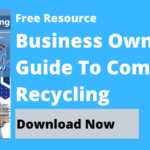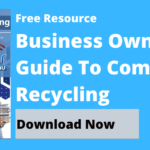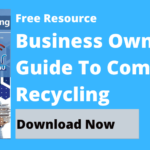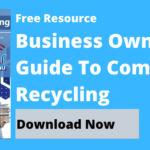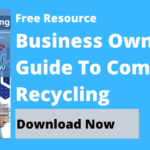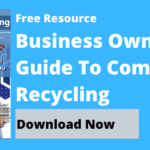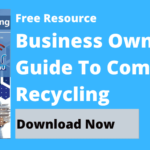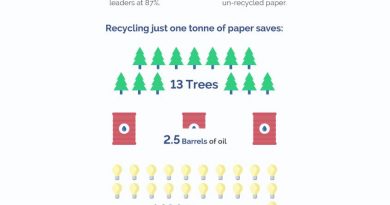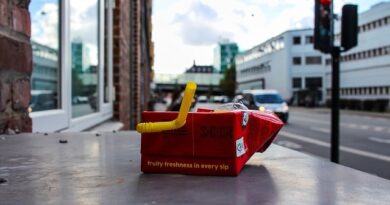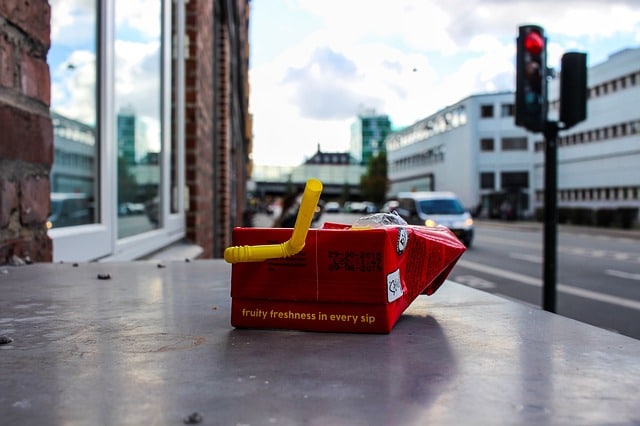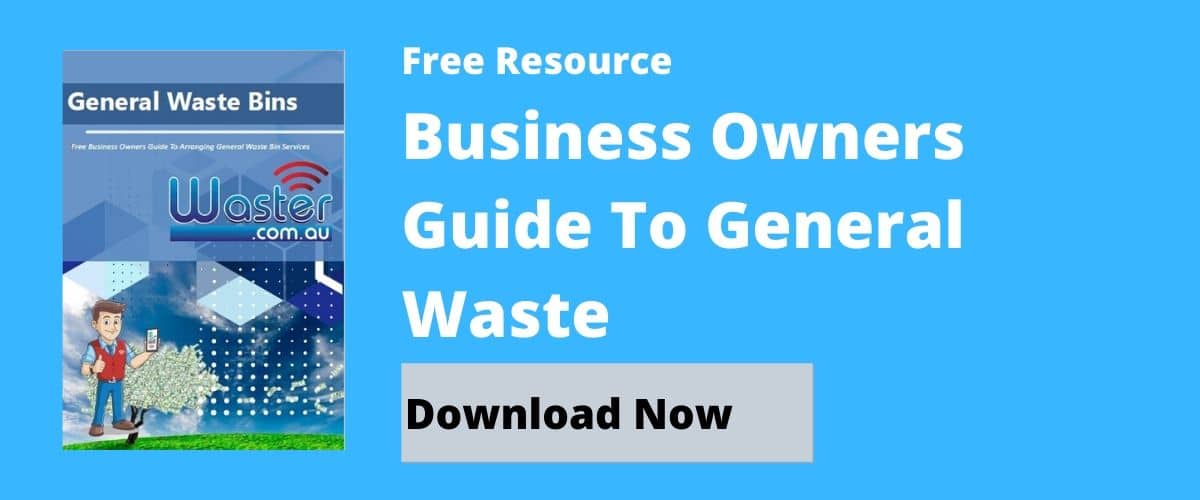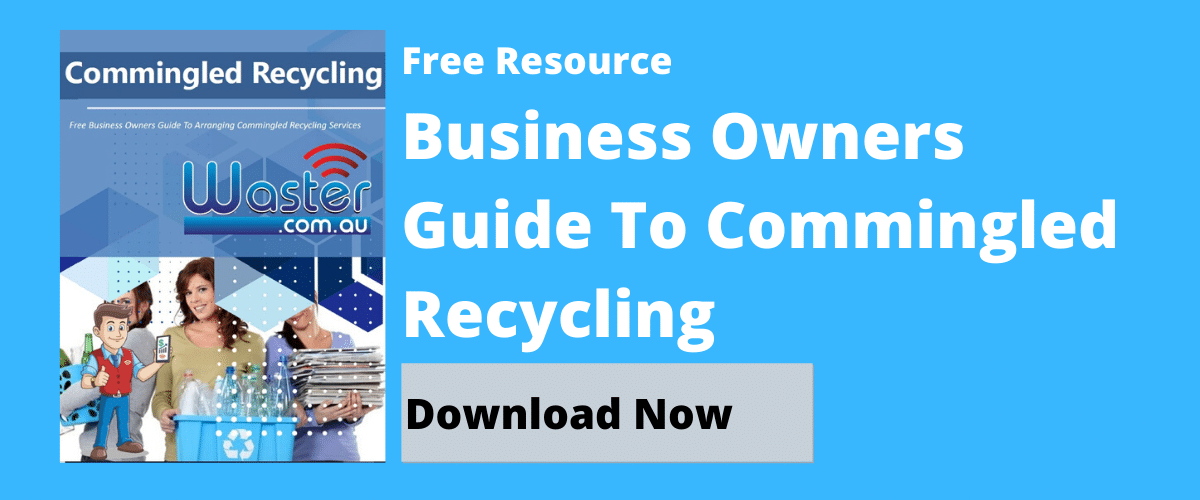Do Return And Earn Schemes Really Work? ♻️ Podcast Ep. 19 Don’t Be A Waster
Energy Disrupter
Do Return And Earn Schemes Really Work? ♻️ Podcast Ep. 19 Don’t Be A Waster
In this episode of our podcast on all things recycling – we discuss whether or not return and earn schemes really work, so read on to learn more.
Listen on Apple Podcasts Listen on Spotify Listen on Google Podcasts Listen on Stitcher Listen on Amazon Music
Transcript – Do Return And Earn Schemes Work?
Hello and welcome to another edition of your favourite podcast on all things recycling, that is, of course, Recycle: Don’t Be A Waster! In today’s episode, I want to talk about really some general chit chat about return and earn schemes really just some thoughts I have on the topic and you know just really querying or questioning the effectiveness and that sort of stuff I think everyone I think most states in Australia now have return and earn schemes container deposit schemes.
>Download Now: Free PDF Business Owners Guide To Commingled Recycling Bin Services
I believe this started mostly in south Australia that’s where it kicked off really in Australia but they are accepted recycling programs pretty much internationally and we’ll cover a bit of that later in the podcast you know fundamentally in very basic terms you get a certain drinks container usually a bottle or a can and you put it into what is a reverse vending machine and which they’re often called different names such as reverse vending machines return and earn schemes those sort of things and container deposit and so you put the container the drinks container generally into the machine and the machine gives you spits out something such as it can be money in in new south Wales for example it’s 10 cents.
You can donate that to charity you can you know take it and use it you know for income whatever you want to do with it obviously kids love this stuff it’s a great way of incentivizing recycling and like in my house we incentivize the kids to recycle for pocket money you know obviously 10 cents a can 10 cents a bottle things can you know mount up quite quickly so I suppose in today’s podcast I wanted to cover a couple of questions firstly does it actually work do these schemes actually boost recycling because I’ll be honest I had some questions about that secondly you know could you actually make a living from these things and thirdly there’s a handy new bag someone suggested to us recently so we like to publicize that and give it a shout out on the podcast so the first thing is do these do these schemes actually boost recycling theoretically the cans and the bottles that they are they focus on are very easy to recycle anyway you can put them in your yellow commingled recycling bin for free at your house.
[embedded content]
You don’t need to drive anywhere you don’t need to put you know put them in the back of your car you can simply drive them dump them in your bin and they will get recycled so I questioned are we simply doubling up are we counting stuff that would otherwise be recycled you know and to be honest I think it’s a hard one to really measure because you know it’ll be based on counterfactuals will things have changed you know it is hard to estimate but I suppose some of the facts we have like this sound very promising from what I’m reading it began in new south Wales in 2017 and apparently this the objective was to reduce the volume of litter by forty percent in circa three years at that time they estimated that drinks containers were 44 of all litter in the state you know by litter it doesn’t classify exactly what that is but I’m assuming dumping on streets potentially and they’re arguing that there’s been a huge increase in in recycling so there’s a website called exchangeforchange.com.au.
exchangeforchange.com.au, where they basically they go through all the details and they’ve got a dashboard here saying how much how many items have been recycled how many things have gone into the system and the benefits of it and like they’re claiming in just in the last quarter in new south Wales alone 294 million containers were processed through the system which obviously is equivalent to more than a billion per annum which is you know pretty huge and they’re claiming that that is a significant benefit on what would have happened in a kind of factual environment obviously for that example we have to look you know some international some I suppose audits that have been done with some of these systems and the company Tomra who I think they partner with clean away at many of the facilities in Sydney or in new south Wales.
They also operate internationally and so there’s a lot of in information about this stuff you know internationally you know they’re claiming that some of the information I’m reading here that in some countries almost 100 percent of all drinks containers are recycled which is pretty phenomenal to be honest the very first implementation of these machines was in Norway in 1972 and nowadays obviously you know what’s that now 40 50 years later almost it Norway has a circuit 97 recycling rate for cans and 95 for pet plastic drinks containers again which is literally phenomenal another European country here Germany has an extremely high rate their scheme started in 2003 so getting on roughly 20 years ago and they’re hitting similar with 97 of all plastic bottles returned and 99 of cans we moved to a country I suppose.
Another country maybe Lithuania eastern European nation for former soviet bloc and they implemented the scheme more recently 2016 so you know just one year prior to the input reduction in new south Wales and they are claiming to see they’ve gone from at the beginning of this of the of the scheme it was pet containers were roughly 30 34 so a third and then within two years it’s up to 92 percent.
So like if these figures and obviously we haven’t audited these numbers but they are pretty phenomenal pretty phenomenal numbers if they are accurate I suppose looking here at a country that oftentimes is compared to Australia for various reasons and that’s Canada they started in 1970 so obviously an awful long time before us the latest figures are and again this is from tamara themselves that is 80 of non-refillable beverage containers sold so only one jurisdiction does not recover containers through municipal curb side so okay.
So basically the ones the one state or pro I think provinces in Canada the one area in Canada that does not have them it doesn’t actually mention which that one is but they have a 50 recovery rate versus an average of 80 percent in the provinces that use these systems so like in all honesty that’s pretty phenomenal obviously this is coming from Tomra themselves who promote these machines but that is you know on just on face value that sounds incredible and seriously worthwhile.
So it certainly seems to be something that we should be promoting what I also like about these pros programs is that the ten cents is funded to my to what I’ve read based on drinks manufacturers so the actual it’s a version of an extended product responsibility the EPR system or methodology that we covered in a previous podcast were by the polluter pays not really the polluter but in theory the manufacturer the company the person who makes the material in theory they are incentivizing and helping close that loop and making sure it’s there’s a recycling option available for it so you know I think it’s 10 cents I can there are additional own costs in running it and I think from just reading the website it’s roughly 11.2 cents per container is the cost of running the scheme of paying the fee and of maintaining.
So it’s look it sounds to be a beneficial program and I I am actually surprised but I suppose we move on to the next section that I wanted to talk about and that is I’m sure you see it I see it all the time I see people going up and down the street collecting containers collecting drinks and cans in plastic bags oftentimes in shopping trolleys pushing them up collecting huge numbers and clearly doing it for money and I suppose I’ve always questioned I suppose that was firstly where I thought maybe they are you know just taking stuff from the commingled bin and you know it’s not it’s really just a cannibalization of recycling that would be happening anyway.
I suppose an argument there is that the the argument there is that when you use these return and earn schemes the containers are cleaner they’re more likely to be recycled the contamination level is much lower and so that boosts the recycling obviously these people are also picking cans up off the ground they’re finding them in hedge ways hedges etc. and it really is probably boosting the recycling my question is can you actually make a living or supplement your living with these with this sort of work you know a 10 cents a pop you know I actually don’t know but I’d be interested to hear what people say I know dumpster diving a lot of people are into that it’s increasing in popularity in Australia there are various legal issues you know state by state and we’ll not get into that.
Pardon me but I think you certainly can supplement your income I certainly believe it’s possible to collect an extra 50 bucks a week without a huge amount of effort I would I would assume with a couple of hours effort potentially just going up and down the streets and picking up containers I certainly wouldn’t dismiss that it could be you know much more than that you know fundamentally if you think about it like a bottle of beer a creative beer 24 24 bottles if you had a party at a weekend or you know that’s certainly 2.40 you know if you and that’s not with the not even counting going up and down the street you add in the cans of coke you add in you know whatever else it could be the milk containers that are that are qualifying you know I certainly can see somebody making 50 bucks a week which is a nice supplement certainly for maybe young people or people with a lot of time on their hands so it probably incentivizes maybe that gig economy you could almost describe it to do that little bit of footwork I suppose we’ll finish off with somebody pointed out something to me that was very I find it interesting recently.
It’s a thing called the refund bag r e f u n d b g dot com dot a u so refundbag.com.au and this is an Aussie company making bags designed pretty much for transporting and collecting your containers it’s a hard wearing durable bag it actually fits inside your straps on basically to your commingle bin so that you can utilize your commingle bin when you go down to the bin you can put in the containers that you know will be recycled through this returning urn and throw the other stuff you know like jugger pots or whatever it is wine bottles that don’t qualify into the remainder of the bin you can then pull that bag out I’m just reading the website and we’ll link to it in our show notes secure easy fit durable and washable easily removable self-standing for transport no leak no smell.
And so looking at it clearly is a useful invention it fits a standard 240 litre bin and it makes it easier very easy for you to transport these things to the place clearly one thing I’ve always noticed about this we try to do it speaking of the kids we try to incentivize the kids but then you end up having you know empty soft drink cans etc sitting around the house waiting and maybe you don’t get to the facility the Tomra facility as often or as soon as you like so I think this is a great invention we’ll give it you know we’re giving a bit of a promotion here and we’ll link to their website also in the show notes if anybody’s interested so yeah tell us what you think obviously like and subscribe and if anyone can leave a review on a positive hopefully on any of the platforms that of course helps us with the algorithms rank and get more listeners and keep that conversation going about recycling. So once again, have a great have a great day, have a great week and Recycle: Don’t Be A Waster!



